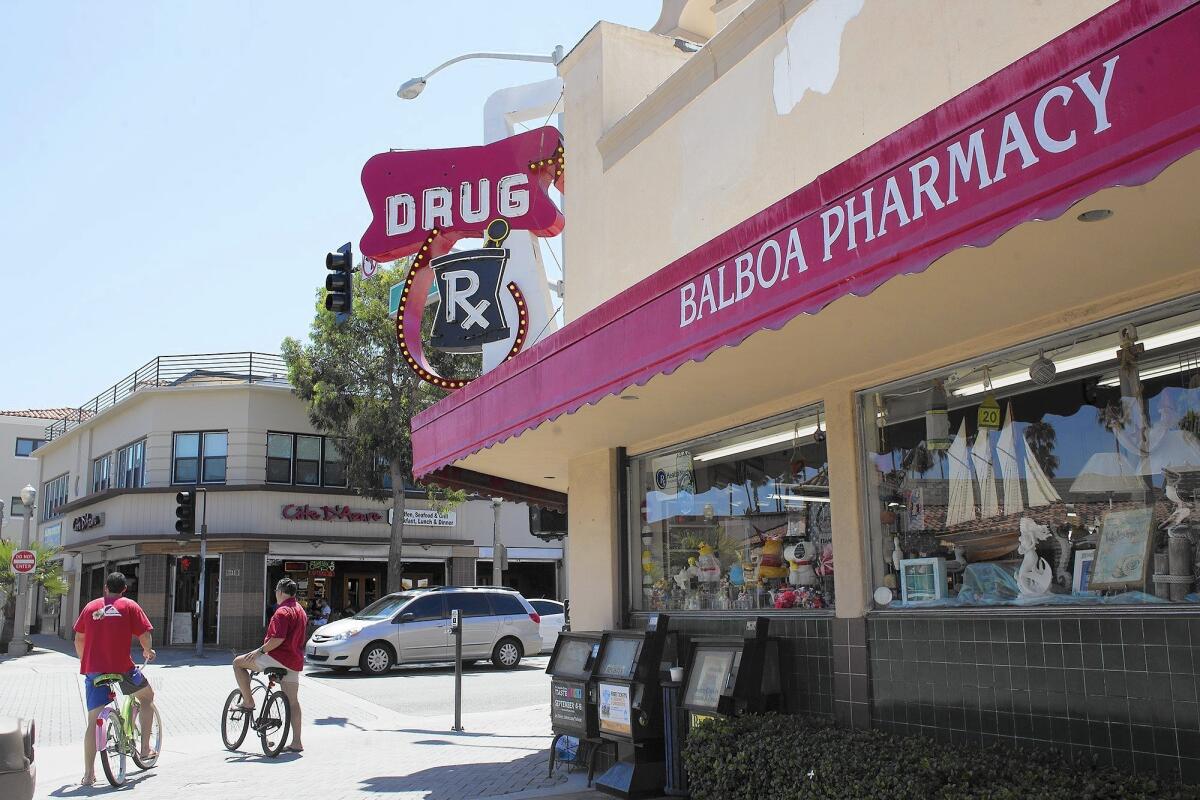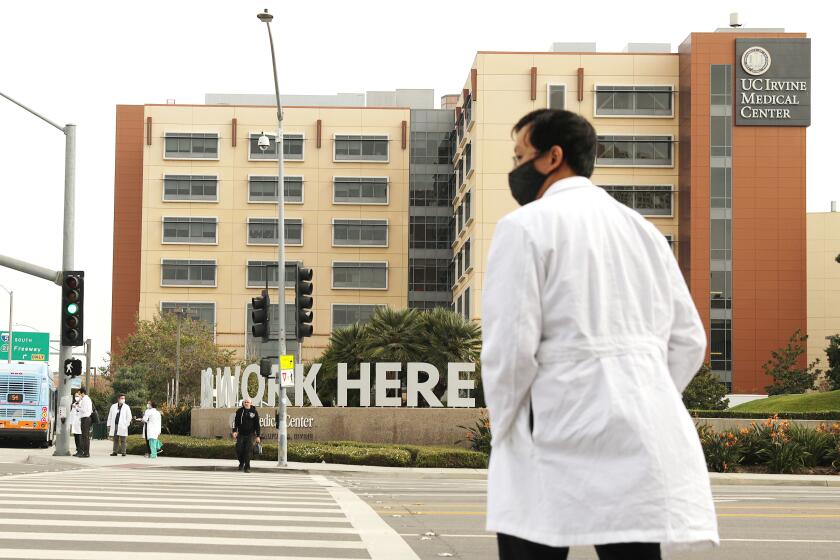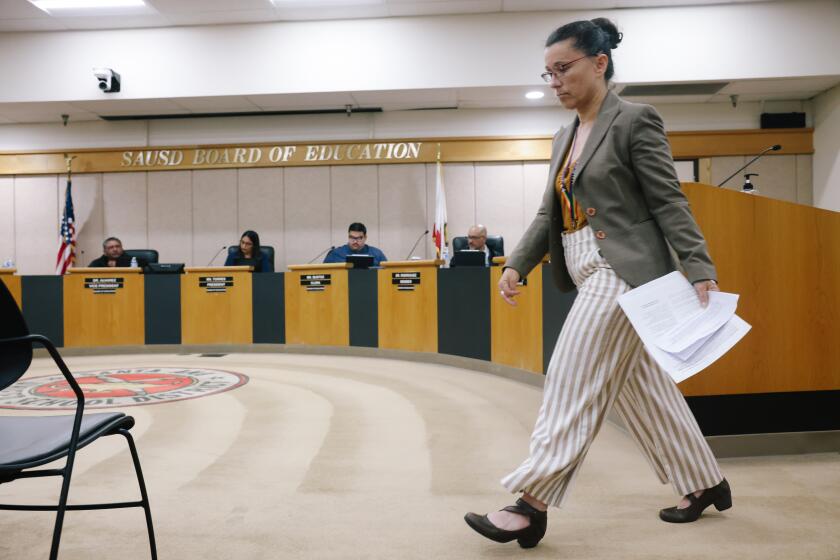UC Irvine first to study ‘pharmacy deserts’ in California

- Share via
UC Irvine researchers recently published the first study analyzing the presence of “pharmacy deserts” in California.
Pharmacy deserts are communities that have limited access to pharmacies. Black, Latino and low-income communities have historically lacked close access to pharmacies, according to information provided by researchers.
These same communities have also been hit hardest by the COVID-19 virus, with Santa Ana’s and Anaheim’s Latino residents experiencing the brunt of Orange County’s cases.
While the idea of pharmacy deserts is not new, Cheryl Wisseh, the study’s first author, said researchers haven’t typically looked at the social factors that play a role in the phenomenon, like access to a car, crime rates and poverty.
The Orange County Health Care Agency Thursday recorded 2,701 new coronavirus infections and 29 deaths, bringing the countywide case count to 177,733 and pushing the fatality rate to 1,972.
Wisseh, a health sciences assistant clinical professor at UC Irvine, and her colleagues were the first to link disparities and pharmacy deserts in California. The researchers specifically focused on communities in Los Angeles County where the closest pharmacy was at least a mile away.
They found that areas with less access to pharmacies generally have denser populations, greater numbers of Latino and Black residents, less vehicle and home ownership and higher crime rates and poverty.
“Having those social determinants of health, these can compound the negative effects of having a pharmacy shortage,” Wisseh said.
UC Irvine partnered with researchers from the Charles R. Drew University of Medicine and Science in Los Angeles for the study.
It’s all the more urgent that people have access to pharmacies for health screenings, vaccines and medications during the current pandemic.
“With people living in these deserts ... it’s thinking about having to use the bus to go get your medications and, you know, planning your life around that,” Wisseh said. “Especially if you’re somebody who has a chronic condition and you’re taking several medications, it becomes a bit of a challenge and it influences the quality of life.”
Wisseh said the ability to order medications in the mail has possibly helped ameliorate the issue, but many people lack internet access to order medications.
The news coincided with reports that an angry mob had stormed the U.S. Capitol building in Washington, D.C., where Rep. Michelle Steel (R-Seal Beach) would have been working, had she not been under quarantine.
She pointed out that it would be helpful if policymakers worked to ensure that population health is a key component in determining market entry plans for pharmacies and approving policies to increase access to medications.
Wisseh said further research is needed to fix the pharmacy disparities.
She plans to conduct a larger-scale study to analyze whether pharmacy deserts contribute to minority community members not taking their prescriptions as prescribed and to investigate disparities with the availability of medications within pharmacies.
All the latest on Orange County from Orange County.
Get our free TimesOC newsletter.
You may occasionally receive promotional content from the Daily Pilot.





